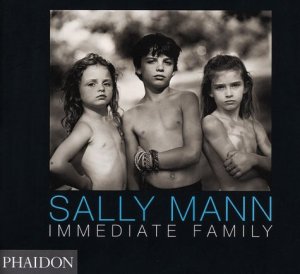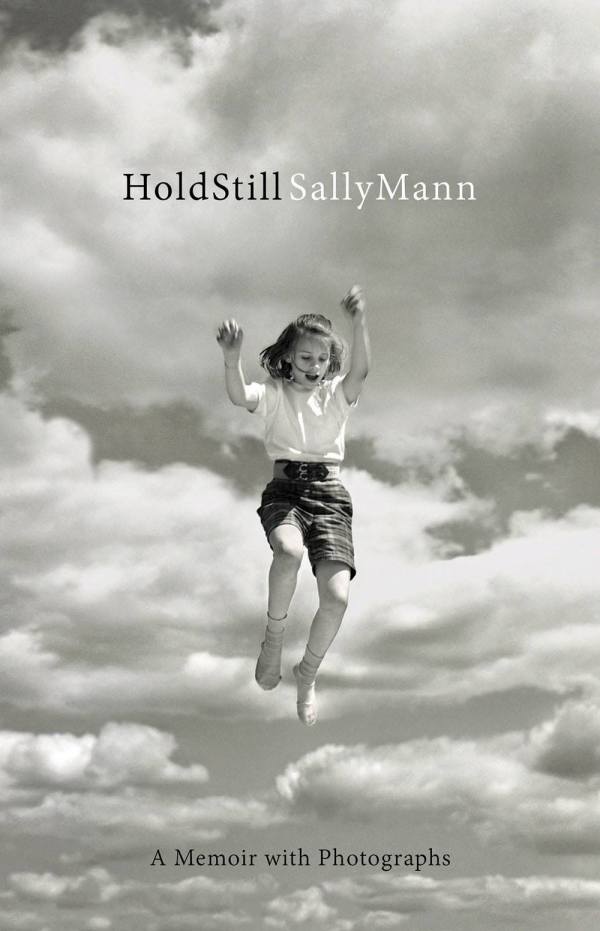FRESH AIR
Photographer Sally Mann is fascinated by bodies. In the early 1990s, she became famous — or notorious — for her book Immediate Family, which featured photographs of her young children naked. Critics claimed Mann’s work eroticized the children, but Mann says the photos were misinterpreted. “I was surprised by the vehemence, I guess, of the letters and the dead certainty that so many people had that they understood … my motivations and feelings and who my children were,” Mann tells Fresh Air’s Terry Gross. “People feel like they understand the children just by virtue of looking at the pictures but … those aren’t my children. Those are photographs of my children. They’re just a tiny, tiny moment slivered out of time, a 30th of a second.” After those photos, Mann moved on to what she describes in her new book, Hold Still: A Memoir with Photographs, as “deeply personal explorations of the landscape of the American South, the nature of mortality (and the mortality of nature), intimate depictions of my husband and the indelible marks that slavery left on the world surrounding me.” Mann’s work has included a series of photos of decomposing bodies in a University of Tennessee forensic anthropology research facility and photos of her husband, whose muscles are withering from muscular dystrophy.
RELATED: Sally Mann’s Exposure
RELATED: Provocative, enigmatic and violating taboo, the work of photographer Sally Mann comes swathed in so much controversy and innuendo that it is easy to forget that she is producing some of the most compelling and indelible images of our time. Likewise, because of her decision to focus her camera on her own children, it’s also easy to forget that Mann is a concerned and protective mother. A traveling exhibition of Mann’s latest work, which opened Thursday at the Institute of Contemporary Art at the University of Pennsylvania in Philadelphia, should both dispel and raise anew the nagging allegations of child exploitation.
Mann began photographing her children in 1984 as a way of balancing the demands of her art with the responsibilities of motherhood. “I was very committed to the idea of being a parent who stays with her children,” said the 41-year-old Mann, during a recent telephone interview from her home in Lexington, Va. “On the other hand, the children provided me with such astonishing, revelatory images that I would have had to have been in a strait jacket not to take those pictures. The children just seemed so vital and creative in the way they play-act.”
Mann’s latest book, Immediate Family (Aperture; $35; 44 pp.), is a powerful and intensely intimate series of photos that capture her  children, by turns frolicking and brooding, against the palpably humid Southern Gothic backdrop of her homestead in Virginia.
children, by turns frolicking and brooding, against the palpably humid Southern Gothic backdrop of her homestead in Virginia.
The children — Emmett, 12, Jessie, 10, and Virginia, 7 — are naturals, staring down the camera, at times lamb-like, recumbent and sleepy-eyed and at other times hostile, contemptuous or anguished. But always fragile; the scrapes and scuffs that all children incur — a bloody nose, a cut above the eye, chicken pox — are chronicled by Mann in a manner that is distressingly graphic. The little scrapes are amplified by Mann’s camera into near-mortal wounds; they become both metaphors for the traumas of childhood and grim reminders of the menace of the adult world that surrounds them.
With her impeccable sense of mood, layout and lighting and an almost literary grasp of narrative and allegory, Mann tears aside the veil of cutesy sentimentality that is often cast in front of children to reveal the psychic territory that children wander. It is a place of beatific delight that is both mysterious and seraphic, yet prone to outbursts of internalized violence.
Mann photographs only in the summertime, so many of the photos in the book and exhibit find the subjects deep in the woods, swimming or near water, and consequently, unclothed. The nudity has, unfairly it would be noted, raised questions of exploitation and the specter of child pornography.
To Mann, it is a dirty mind that sees a dirty picture. “Pornography is a picture of a crime, of an evil deed, a heinous act. None of my pictures are that,” she said, adding that she never usually answers such questions because it would give them credence. “Pornography is solely for the titillation of the viewer, which is not what I do. I see those reactions to my work as people projecting their own insecurities, fears, anxieties and desires onto my work. Apparently, I’ve struck something that runs very deep. But I can’t be responsible for others’ interpretations of my work. I can only protect my children from them.”
Concerned about the potential repercussions that would result from the publicity the book and exhibit will eventually garner, Mann consulted a federal prosecutor in Roanoke, Va. Mann was informed that at least eight of the pictures that she has chosen for the traveling exhibit could subject her to arrest under the federal child pornography laws. “While (the prosecutor) believed that the artistic merit of the pictures was self-evident, she said my biggest concern should be some crackpot in Iowa trying to make political hay,” Mann said. “But I have taken steps to protect myself.”
The “steps” she is talking about are a “fairly sophisticated network of attorneys” standing ready to defend her work. One of those attorneys is Edward de Grazia, a professor at the Benjamin Cardoza School of Law in New York City and author of “Girls Lean Back Everywhere,” a chronicle of attempts to suppress artistic and literary expression in the United States. De Grazia has successfully defended Henry Miller and William Burroughs against charges of obscenity. For the last year, he has been trying to convince Mann to allow him to file a case on her behalf that would challenge the federal child pornography laws.
“What makes Sally such a good case is that her work deals squarely with this taboo subject of nude children,” de Grazia told The New York Times recently. “There isn’t the slightest question that what she is doing is art, so her motives and the artistic value would be unmistakable to the Supreme Court … The child pornography laws, especially the federal laws, are very dangerous to artists like Sally.” MORE

